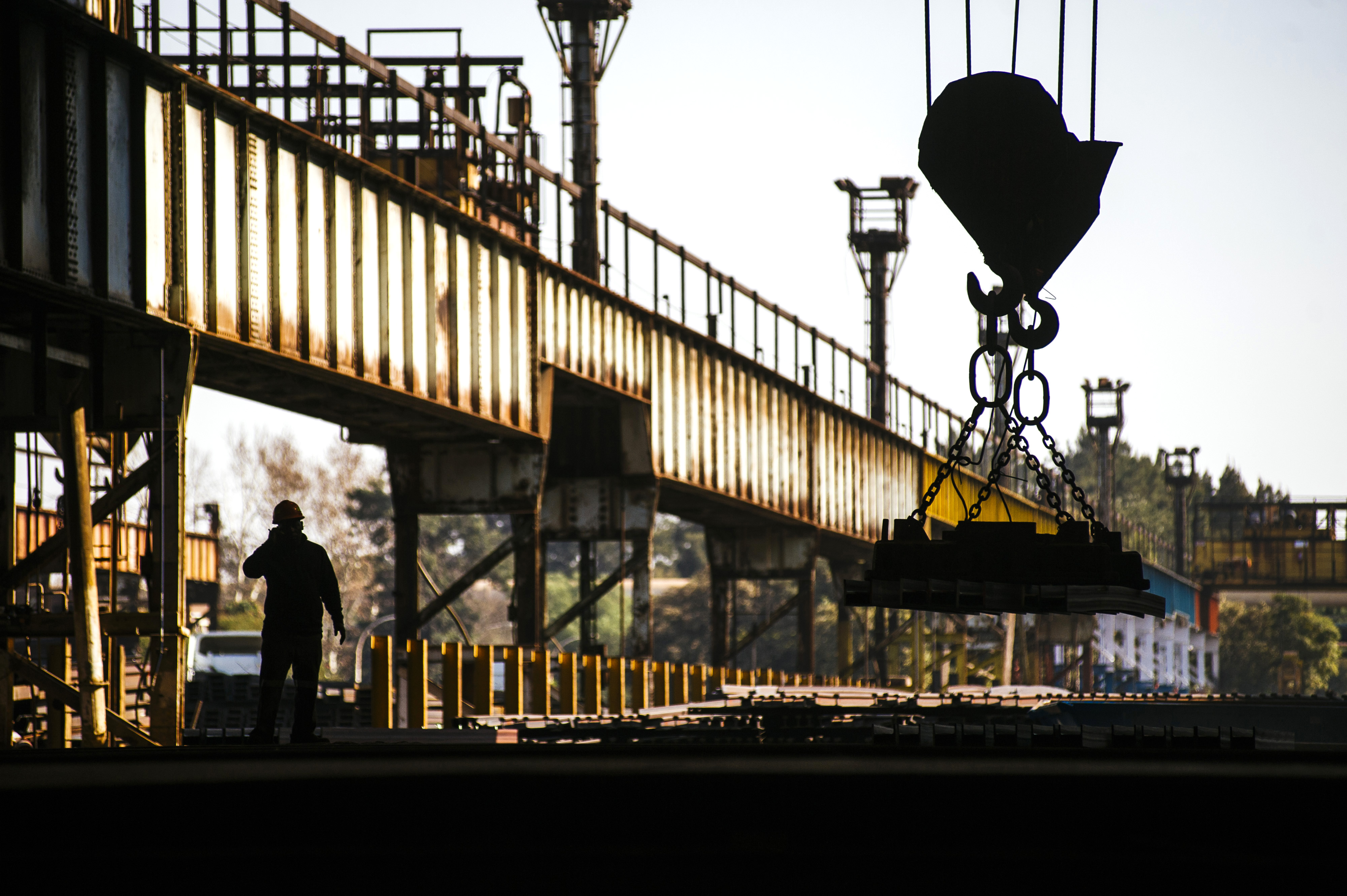ArcelorMittal South Africa has poured cold water on the government’s efforts and ability to reform the economy, with Africa’s largest steelmaker saying it does not see an immediate fix for the electricity and logistics crises.
“The problems around Eskom and Transnet will unlikely change in the near term. We also do not see a change in the economic dynamics of South Africa,” said Kobus Verster, the CEO of ArcelorMittal South Africa, on Wednesday during a briefing with journalists.
ArcelorMittal has taken a dim view of South Africa’s economy and the government’s reform agenda because its steel operations in the country are taking a big financial hit. The company swung from a R3-billion profit in the first half of 2022 to a R448-million loss during the same period this year. The toll is so enormous that ArcelorMittal has announced the closure of its operations in Newcastle and Vereeniging, starting from January 2024, which will put 3,500 jobs on the line.
It is a damning indictment of President Cyril Ramaphosa’s reform agenda, which has arguably failed to deliver on promises, set four years ago, to turn around the electricity and logistics crises. The lights are now off more than ever and the state-owned transport group Transnet cannot fulfil its most basic function of moving trains and delivering goods efficiently through its ports.
Beyond ArcelorMittal, other companies are also planning to cut jobs. Several mining companies, including Glencore, Seriti, Sibanye-Stillwater and Impala Platinum have either planned to or have started retrenchment talks with workers and their trade unions to potentially cut up to 10,000 jobs by January.
Transnet, Eskom problems
The dysfunction and unreliability of Transnet’s rail network have meant that ArcelorMittal is transporting raw materials to its factories by road, which is more expensive.
ArcelorMittal relies heavily on Transnet Freight Rail to transport 91% of the iron ore and 100% of the coking coal consumed at its Newcastle and Vanderbijlpark factories to produce steel. However, the shift to road as a direct result of Transnet inefficiencies has cost ArcelorMittal losses amounting to more than R1-billion just in 2022, linked to an increase in operating costs and lost sales.
Then there is the negative impact of Eskom blackouts, which harms ArcelorMittal’s steel production process. Verster said higher stages of Eskom blackouts in recent days, with the country being placed on Stage 6, meant that its factory in Vanderbijlpark was asked by the power utility to embrace load curtailment for eight hours a day over the past three days. Load curtailment happens when Eskom asks big businesses and industries to reduce the use of electricity when the power system is under pressure.
Verster said the operating environment for businesses had become more difficult and the company was now forced to close its operations in Newcastle and Vereeniging, as well as the ArcelorMittal Rail and Structural operations in Mpumalanga, which rely on intermediate products currently produced at Newcastle.
These operations will begin winding down in January, when they are scheduled to stop receiving steel-making materials, such as iron ore. The winding-down process is set to take between five and six months, said Verster, adding that it might take longer as ArcelorMittal still had to negotiate with affected communities, workers, trade unions, Transnet and the government.
He stressed that the closure of these operations was the last resort, after years of aggressively cutting costs at the company, which turned out to be futile as structural and economic problems in South Africa became overwhelming.
In addition to Eskom and Transnet problems, ArcelorMittal has been battling with a 20% decline over the past seven years in the demand for long steel products (which includes wire, rods, railway rails and bars). Underscoring the decline is that South Africa has a crude steel manufacturing capacity of between eight million and nine million tonnes. However, steel demand stood at only 4.2 million tonnes.
The government is not embarking on large-scale infrastructure projects, which would pave the way for ArcelorMittal steel products to be in demand.
Government policy blunders
What also pushed ArcelorMittal to shut its operations were policy blunders by the Department of Trade, Industry and Competition (DTIC). It introduced a new preferential pricing system for scrap, a 20% export duty, and a ban on scrap exports that have given steel production via electric arc furnaces an “artificial” competitive advantage over steel manufacturers that use iron ore to produce steel. This means scrap metal traders who recycle steel are gaining an advantage over ArcelorMittal’s more intense operations such as Newcastle, which consumes heavy raw materials such as iron ore.
The Steel and Engineering Industries Federation of Southern Africa (Seifsa) — an industry body whose members include 1,300 companies, employing around 170,000 workers — has called for Ramaphosa to urgently intervene to correct the policy as “it seems that the DTIC seemingly does not have the capacity, nor the grasp of the broader implications of these developments.
“The matter is now beyond urgent and we urge the President and key ministers in the Economic Cluster to treat it as such, if we are to avoid a socioeconomic catastrophe of gigantic proportions in the metals and engineering industry which will reverberate throughout the economy and the continent, impacting the auto, motor, construction and mining subsectors of the economy and all who work in [them].
“The reconstruction and recovery of the South African economy and more specifically the metals and engineering industry must be looked at in the wider context of reindustrialising critical sectors, along with all the other challenges facing the economy, from energy and logistics to the water infrastructure and crime,” Seifsa said in a statement.
At this point, ArcelorMittal cannot be convinced to reconsider the shutdown of its operations. Verster said he remained open to talks with the government. However, he is pessimistic about the ability of the government to intervene to fix problems weighing on the steel industry.
“We are clear about the problems. They are complex and will be difficult to fix,” he said. DM





